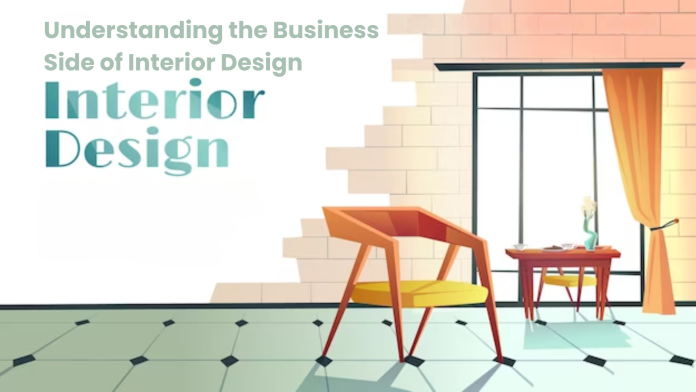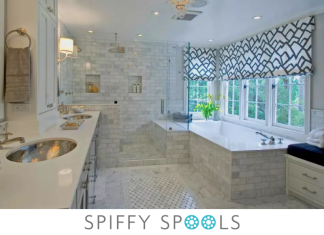Interior design is a fascinating profession because it expertly combines aesthetics and functionality. However, interior design has a thriving commercial aspect, ensuring artistic dreams become successful businesses. In this blog, we will go into the creative side of interior design and explain the fundamentals of the business that support it. This blog will shed light on the lucrative world of interior design, whether you are contemplating an Interior Design Certification or just wondering about How to Become an Interior Designer.
Table of Contents
- The Role of Interior Design in Modern Business
- The Business of Interior Design
- Tips for Aspiring Interior Designers
- Conclusion
The Role of Interior Design in Modern Business
Commercial and residential interiors owe a great deal to the talents of interior designers. Particularly in the business world, it has been widely acknowledged that a building’s interior design has a major impact on the company’s ability to attract and retain both consumers and staff.
The need for professional interior design services in the business sector has increased in recent years. Since more and more organisations are looking to improve their brand recognition and create environments that encourage productivity and creativity, there has been a rise in the need for certified interior designers. This means that it’s more important than ever for aspiring designers and even seasoned pros to have a firm grasp of the interior design industry’s business fundamentals.
The Business of Interior Design
One must recognise the many facets of interior design to truly grasp the commercial side of the industry. It requires a blend of creative vision, project management skills, and financial savvy, and it goes much beyond the simple act of picking paint colours and rearranging furniture.
Client Relationships
Relationships with satisfied customers are the backbone of every successful interior design firm. Establishing credibility, meeting expectations, and keeping people in the loop are all crucial. Interior designers often serve as consultants, advising customers on how to best express their vision and have it realised in their physical space. By including the customer in the design process, you can make sure the result is something they’ll be happy with.
Budget Management
Most interior design jobs have a limited budget. Designers’ skills in coming up with cost-effective solutions that achieve desired aesthetic outcomes are essential. Managing a household’s finances requires making smart purchases of commodities and furniture. Designers who create eye-catching pieces without going over client budgets are highly valued.
Project Timelines
The interior design company also requires adherence to deadlines. In the business world, where time is money, clients typically establish strict deadlines for project completion. To keep projects on track and under budget, interior designers need to organise timetables, communicate with contractors and suppliers, and monitor progress.
Marketing and Networking
Effective marketing and networking techniques are also necessary for launching a successful interior design firm. It is crucial to have a solid online identity by means of a decent website and several social media channels. Opportunities and partnerships can be expanded by participating in industry events, joining professional organisations, and building rapport with vendors and service providers.
Legal and Ethical Considerations
There are legal and ethical considerations that interior designers must be aware of. This involves familiarity with legal concepts, including contracts, copyrights, and liabilities. Projects are carried out properly and without legal issues if they conform to industry norms and laws.
Tips for Aspiring Interior Designers
Beginning a career in interior design is an exciting and intimidating prospect for anybody aspiring to become a designer. If you’re interested in a career as an interior designer, read this:
Education and Training
Get your feet wet by enrolling in a formal interior design program. Courses and degrees are available from a variety of schools, including topics like interior design concepts, space planning, materials, and software. You can build a strong foundation for your profession by completing an Interior Design certification or a degree in the field.
Gather Real-World Experience
Practical experience gained via internships or apprenticeships is just as beneficial as classroom education. You can use your newly acquired knowledge in actual design projects and add it to your resume by gaining practical experience.
Create Your Own Signature Style
The most sought-after interior designers tend to specialise in a certain design aesthetic or market niche. Try out several layouts until you find one that suits your taste perfectly. Clients that share your appreciation for your originality in expression are easy to find.
Building a Portfolio
Create a portfolio of your best work as you acquire expertise. When looking for new customers or a new job, a well-organised portfolio might be your calling card. Make sure to include a variety of work that displays your adaptability and originality.
Create a Business Contact Network
The interior design business is one where networking is crucial. Go to conventions geared toward your sector, sign up for membership in relevant groups, and network with other experts. Establishing connections with others in your field could lead to fruitful partnerships, introductions, and new perspectives.
Launch Your Own Company
Starting your own interior design company might be a great way to achieve your entrepreneurial dreams. Plan to manage the finances, marketing, and clientele of your practice independently.
Conclusion
The commercial aspect of interior design is crucial to your success in this competitive industry. The key to success in the field of interior design, whether you’re an aspiring designer or a seasoned expert, is to combine aesthetic originality with strong business methods. The need for well-designed spaces is only expected to increase, creating excellent job prospects for people who are adept at the commercial side of interior design.For more information visit the website: The Knowledge Academy














